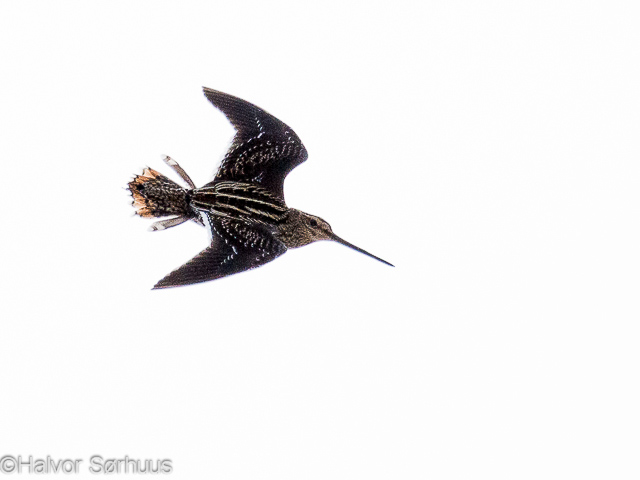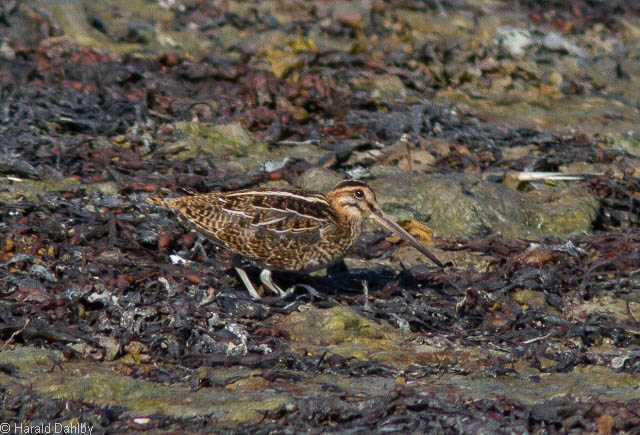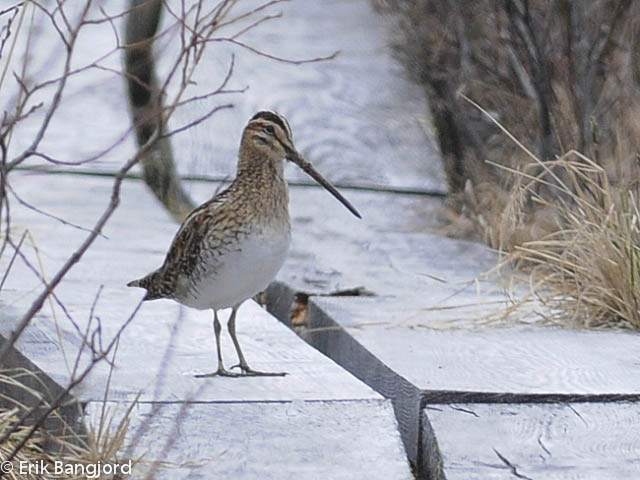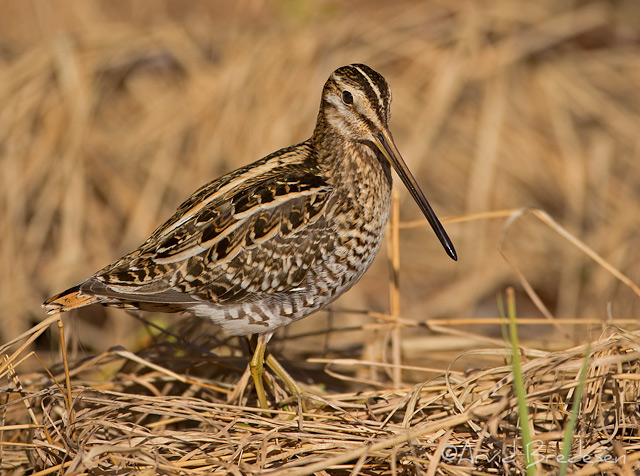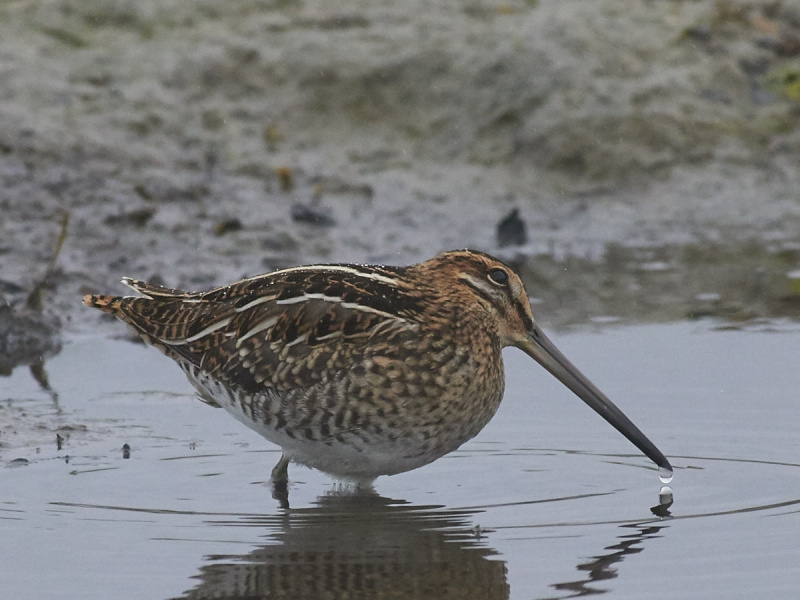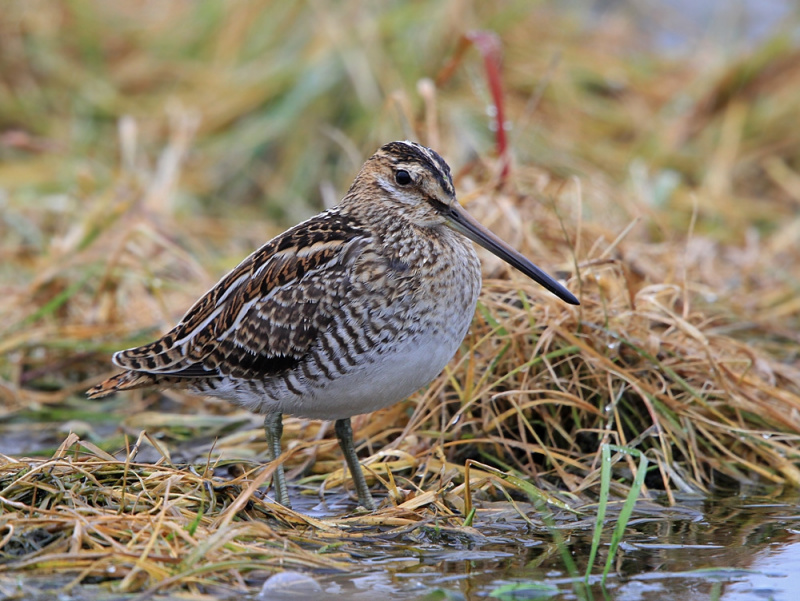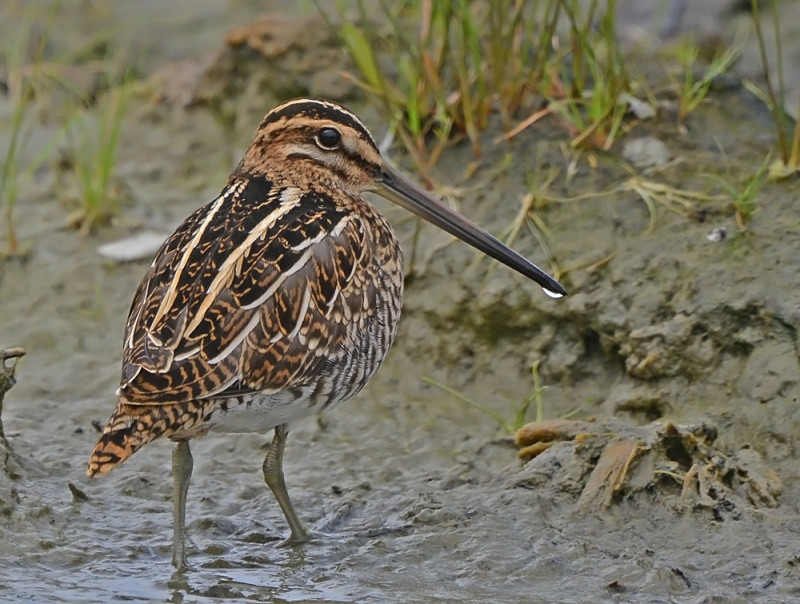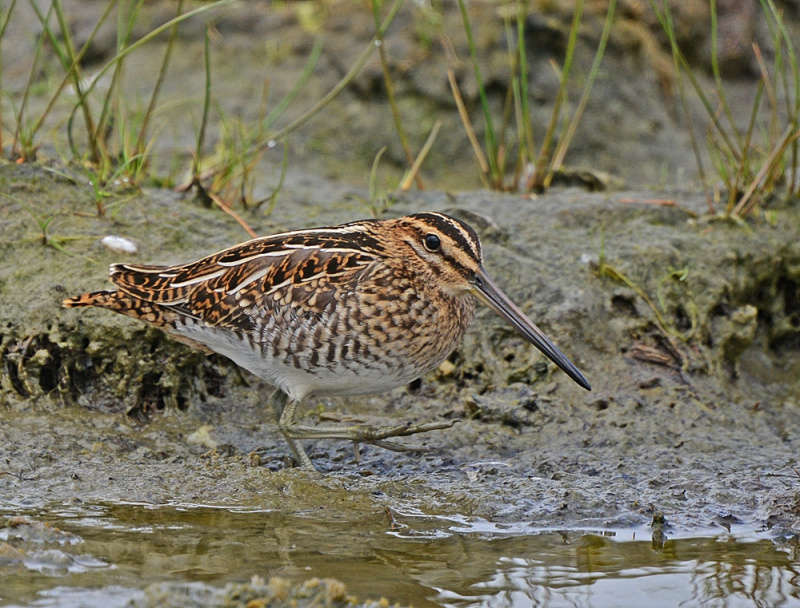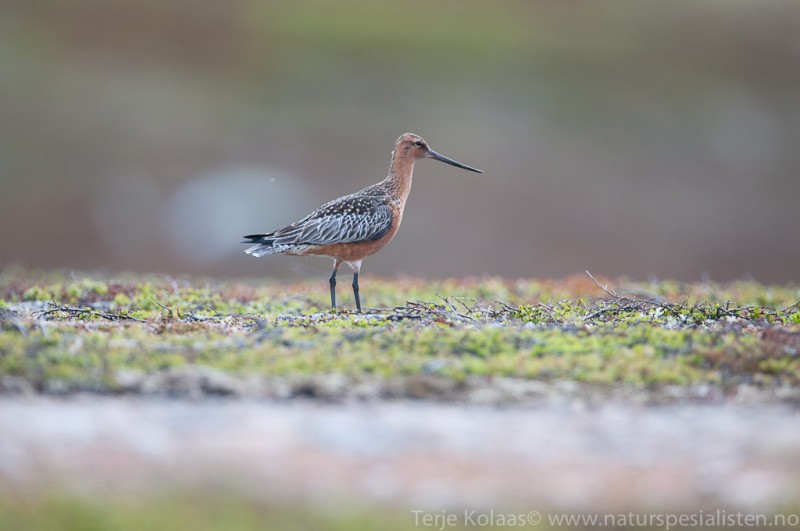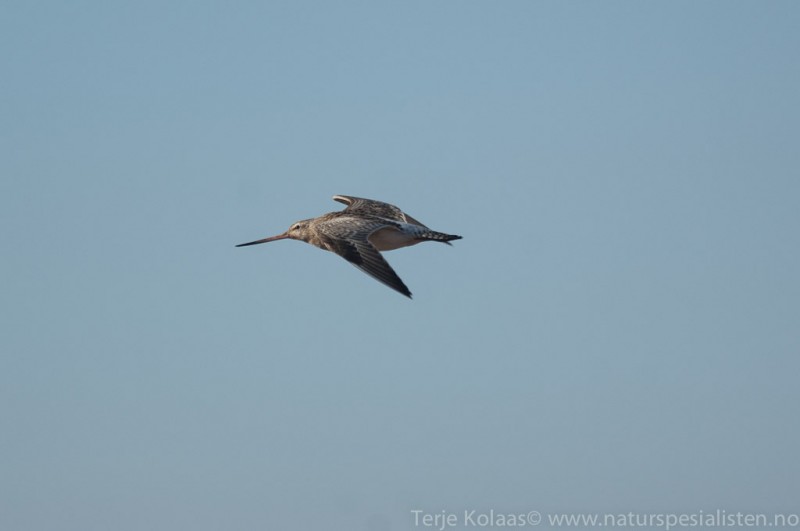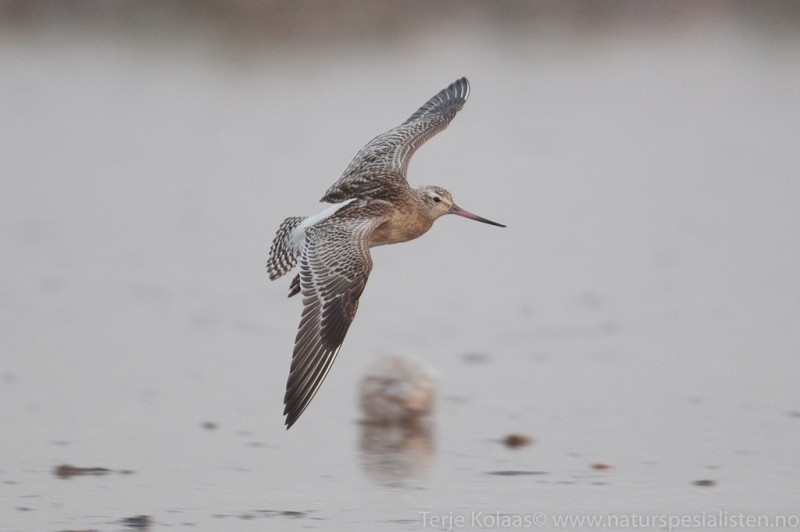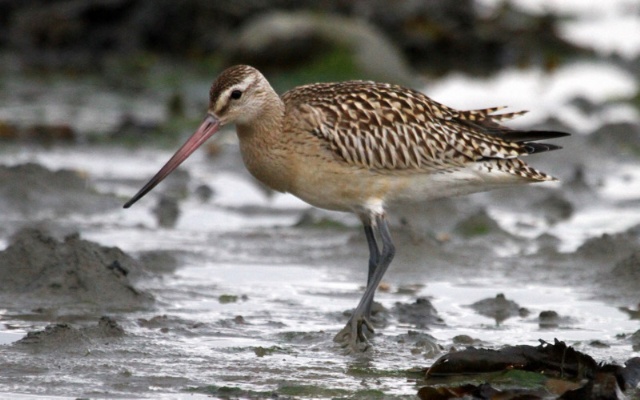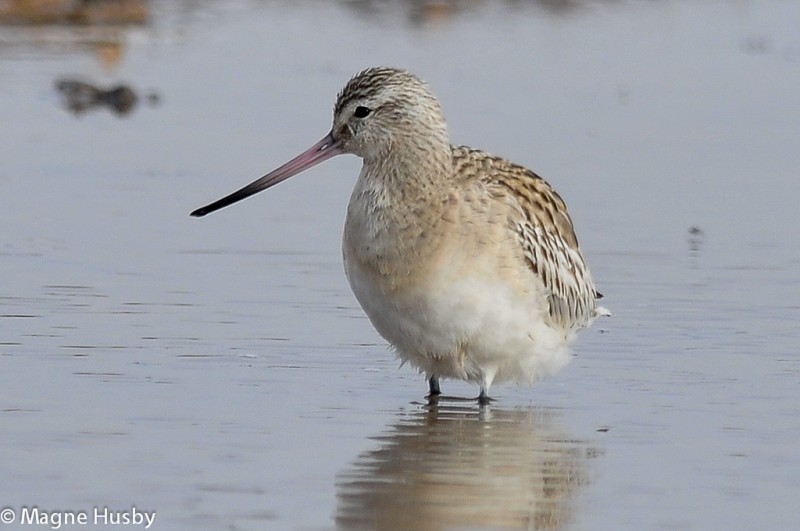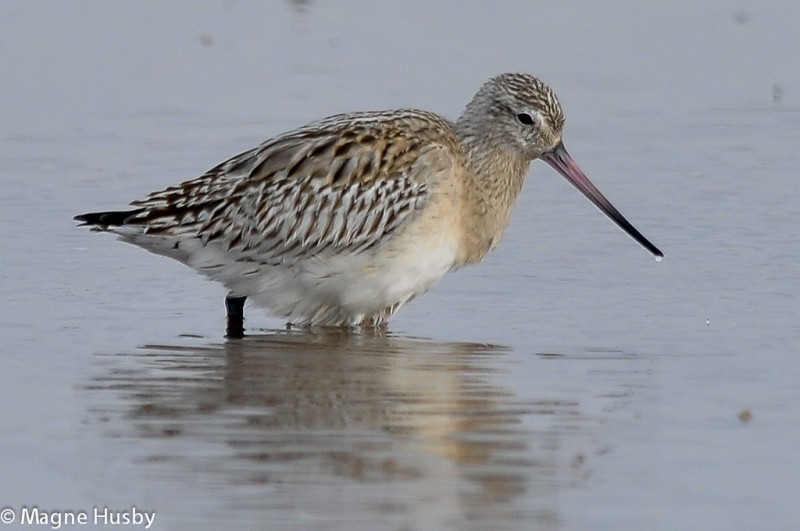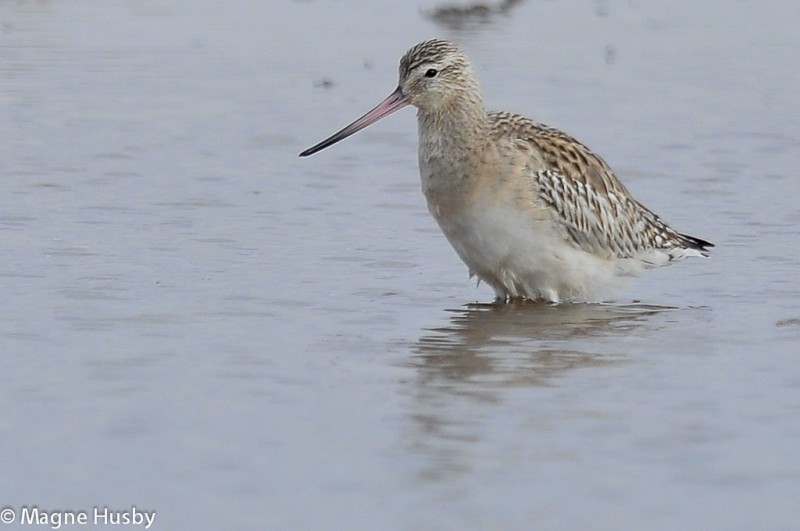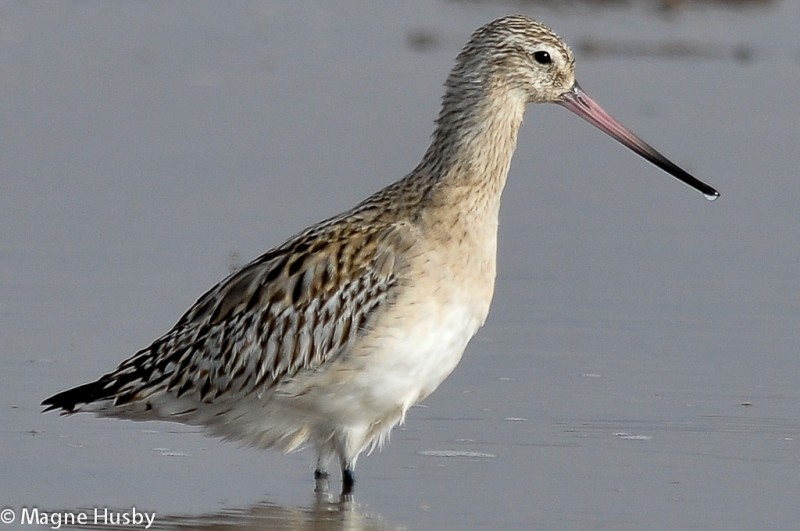Snipe (Gallinago gallinago)
Bar-tailed Godwit (Limosa lapponica)
By far the most common snipe in most areas. Bill longer than congeners. Belly white, in contrast to barred flanks. Upperparts of wings with white trailing edge, underparts with white wingbars. Diagnostic escape flight when flushed, with zig-zag change of direction, characteristic call and long period of circling the area before landing (or leaving altogether).
Sound:Quite vocal, especially at breeding ground. Almost always give diagnostic hoarse and nasal "kaaat" call when flushed. Song an unmistakable bleating, drumming sound produced by vibrating tail feathers in sky-dives. Another territorial call is a rhythmic, mechanical and sharp "tika-tika-tka", or "ika-ka-ka".
Display, flush:
Distribution:
Wikipedia: map (se also Xeno-canto below)
Ecology:Birdlife ecology
Links:
Observation.org Latest observations
Image search Flickr NB! May give other species
CCMost likely to be confused with Black-tailed Godwit, but easily recognized in flight by plain dark wings, white wedge on back and barred tail. More difficult to identify when not flying. Generally more compact, heavier built and less upright than Black-tailed, and with clearly upcurved bill and shorter legs. Belly always unmarked. Base of bill dark in summer and pinkish in winter and in juveniles. Back with arrow-shaped streaking. Adult winter also streaked, and the pale supercilium reaches behind the eye.
Sound:Quite vocal at breeding ground but mostly silent elsewhere. Varied repertoire of mewing and sharp sounds, some resembling Black-tailed, some almost Snipe-like. Contact call a sharp "kwee-kee-wee-kee", with alternating high and low pitch, and decreasing intensity. Display call a hard and sharp "kuwek-kuwek-kuwek-kuwek", with emphasis on second syllable.
Display:
Distribution:
Xeno-canto: map
Ecology:Birdlife ecology
Links:
Observation.org Latest observations
Image search Flickr NB! May give other species
CCSounds:Recorded by Patrick Åberg,http://www.xeno-canto.org ,CC license

 English
English Albanian
Albanian
 Armenian
Armenian
 Bulgarian
Bulgarian
 Catalan
Catalan
 Croatian
Croatian
 Czech
Czech
 Danish
Danish
 Dutch
Dutch
 Finnish
Finnish
 French
French
 Georgian
Georgian
 German
German
 Greek
Greek
 Hungarian
Hungarian
 Italian
Italian
 Latvian
Latvian
 Lithuanian
Lithuanian
 Macedonian
Macedonian
 Norwegian
Norwegian
 Polish
Polish
 Portuguese
Portuguese
 Romanian
Romanian
 Russian
Russian
 Sami : Lule sami
Sami : Lule sami
 Sami : North sami
Sami : North sami
 Sami : South sami
Sami : South sami
 Scientific names
Scientific names
 Serbian
Serbian
 Spanish
Spanish
 Swedish
Swedish
 Ukrainian
Ukrainian

